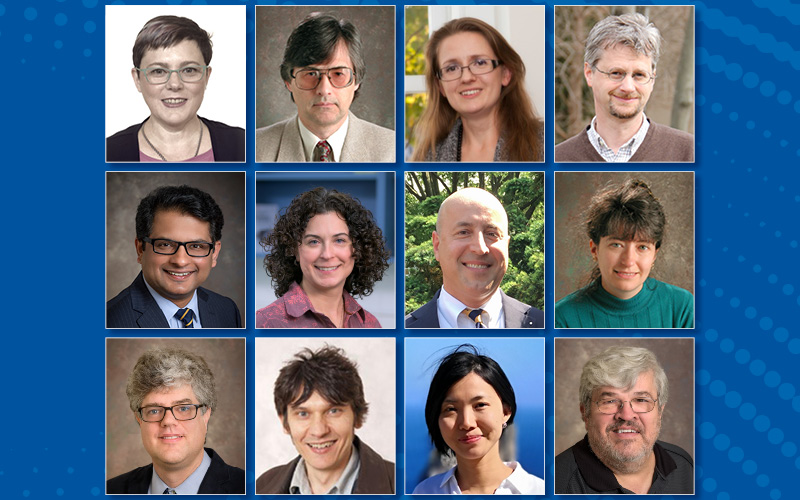
Salil A. Lachke
Salil A. Lachke
Office: 236 Wolf Hall
Lab: 351 Wolf Hall
Resources and Links
Education
- B.Sc. - The University of Pune, India, 1994
- M.Sc. - The University of Pune, India, 1996
- Ph.D. - The University of Iowa, Iowa City, 2003
- Postdoc - Harvard Medical School and Brigham and Women's Hospital, 2003-2010
- Instructor in Medicine - Harvard Medical School, 2011
Teaching
Dr. Lachke teaches Molecular Biology of the Cell BISC401 (Honors), gives lectures in Biochemical Genetics BISC654 and serves as an instructor for undergraduate research taken for credit in BISC468. He also serves as research advisor for undergraduate Senior Thesis, graduate Masters Thesis, and Doctoral Dissertation.
Research Interests
The Lachke laboratory uses interdisciplinary approaches for the identification and functional elucidation of genes involved in organ development and disease. We have developed a bioinformatics approach termed "iSyTE" (integrated Systems Tool for Eye gene discovery, Kakrana 2018 Nucleic Acids Research) and have successfully used it to identify novel cataract genes and predict several other uncharacterized genes with function in lens development. Our goal is to characterize these genes using biochemical, molecular, cell biological, and omics-level approaches. As an important step toward this goal, we have used iSyTE to uncover the role of several new regulators, including CAPRIN2, CELF1, ELAVL1, RBM24, and TDRD7 (post-transcriptional regulatory RNA-binding proteins) and ELL2, MAFG and MAFK (transcription regulators) in lens development and cataractogenesis (Lachke 2011 Science, Dash 2015 Developmental Dynamics, Siddam 2018 PLoS Genetics, Dash 2020 Human Molecular Genetics, Barnum 2020 Human Molecular Genetics, Choquet 2021 Nature Communications). Our long-term mission is to define the gene regulatory networks (GRNs) that underlie organogenesis, in order to devise new therapies. In addition to its clinical significance, we anticipate that insights gained from this research can unveil fundamental regulatory principles underlying cellular differentiation and organogenesis.
-

New Named Professors
October 08, 2024 | Written by CAS Communication StaffFaculty recognized for excellence in teaching, research, service -
College of Arts and Sciences faculty honored
May 10, 2024 | Written by Hilary DouwesSix UD faculty receive awards for excellence in the areas of teaching, scholarship, advising, advocation, faculty mentoring and service. -
Insights into cataracts
July 22, 2021 | Written by Ann ManserLarge genetic study identifies dozens of new links to eye disease

